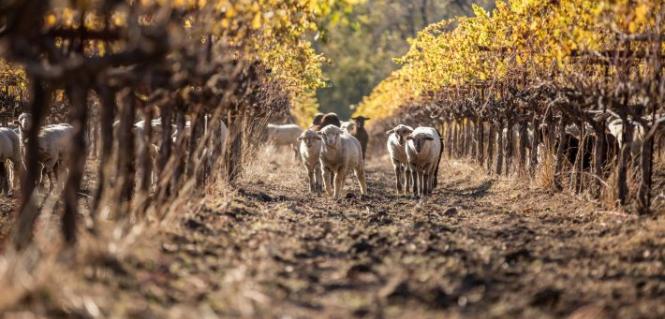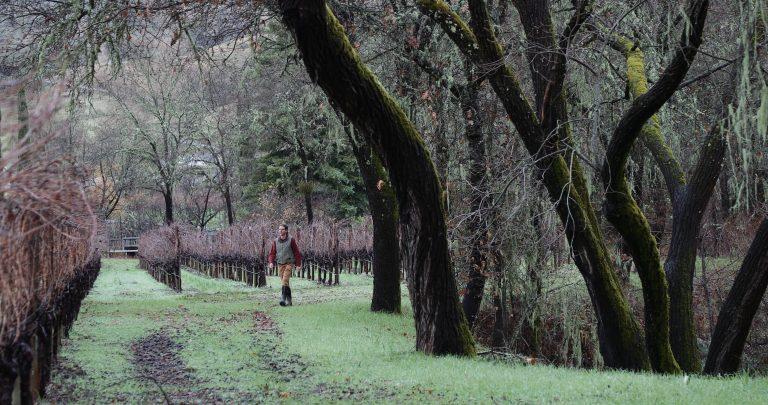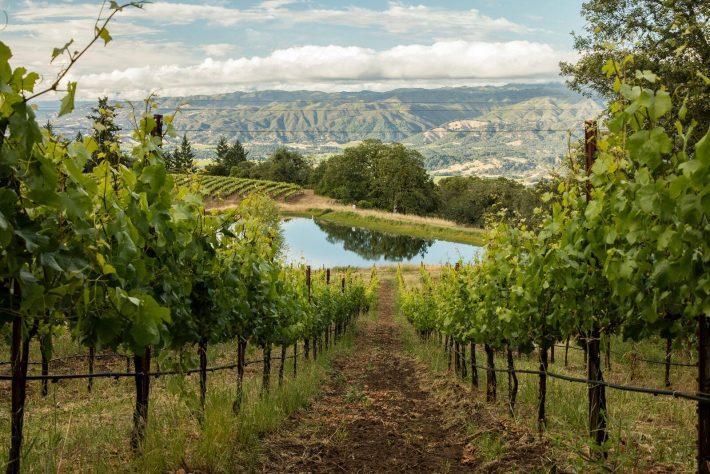
As the buzz continues to grow about soil’s dynamic relationship with climate resilience, more and more organic growers are curious about how their farming practices can fit into the widespread push for climate solutions.
Bonterra Organic Vineyards, based in Mendocino County, is one of them. In 2017-18, the acclaimed California vintner teamed up with Pacific Agroecology of Davis, California to study how their vineyard management practices affect organic carbon storage in soil and plants. Ultimately, the study measured carbon storage in Bonterra’s regeneratively farmed, organic, and Biodynamic vineyards, benchmarking results against a nearby conventionally farmed vineyard. The team collected and analyzed hundreds of soil samples and biomass measurements from 13 vineyards in Mendocino County, taking samples over the course of a year and measuring the amount of soil organic carbon (SOC) in each.

“Uncultivated wildlands are an important part of a regenerative approach to enhancing farm and climate health, and are a natural complement to practices like organic and Biodynamic farming. We not only love the oak trees, ferns, and grasses that surround our vineyards—we believe that conserving them is critical to a beneficial overall carbon budget.” – Joseph Brinkley, Director of Organic and Biodynamic Vineyards at Bonterra
Through the study, Bonterra found that vineyards farmed with organic and Biodynamic methods held 9.4-12.8 percent more soil organic carbon per acre, respectively, than the conventionally farmed vineyard. They also found that total carbon storage in vineyards is substantial, averaging 51,481 pounds per acre—with 89 percent of the total stored as soil organic carbon and the remainder stored in vines, conserved forest, and hedgerows. Further, they discovered that total carbon storage in the uncultivated forests and grasslands of their properties—which comprise nearly half of the land they own—was highest among all sites studied, findings that affirmed Bonterra’s commitment to wildlands conservation.
Bonterra’s findings add to a growing body of research about a positive relationship between regenerative farming practices and the capacity of soil to sequester carbon.
“With a warming planet, it’s clear that Earth’s carbon cycle is out of balance, so the impact of these findings couldn’t be more relevant today. Regenerative agriculture builds healthy soils through beneficial practices such as applying compost, planting cover crops, planned sheep grazing, and reduced tillage.”
– Joseph Brinkley, director of organic and biodynamic vineyards at Bonterra
Bonterra’s work clearly and powerfully demonstrates yet another example of why the state of California’s efforts to invest in farmland’s climate solutions is important and effective. Over the last ten years, CalCAN has partnered with innovative growers like Bonterra throughout California to advance state policies that support agricultural climate solutions. For example, in May, Bonterra and almost 200 farmers, ranchers, and organizations signed a letter calling for increased funding for California’s Climate Smart Agriculture programs. They also recently submitted a letter to the editor in Sonoma County’s The Press Democrat with the same message.
Dig into the details of Bonterra’s study and findings.

***
This article was submitted by CalCAN—California Climate and Agriculture Network
CalCAN is a statewide coalition that advances policy to realize the powerful climate solutions offered by sustainable and organic agriculture. View the original post of this article.